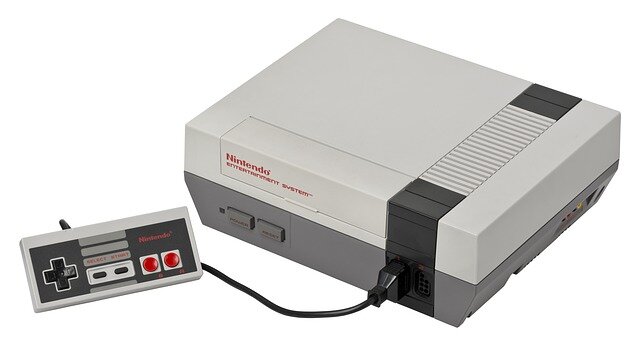The TV and movie industry is always looking for inspiration, while already written with a following are seen as the ideal to be put on screen. Sometimes they’ll turn to classic stories and modernize them. This includes any work from Shakespeare to epic poems of the Vikings, equally likely to be turned into a gritty Western as a 21st century action/romance. Sometimes they’ll just take a book and make that into a movie, with or without adaptation for modern sensibilities and politics. And, every now and then, you’ll see them try to adapt a video game.
Converting a written story into a TV show or movie is fairly simple. You already have a screenplay or script down to the dialogue, and the visuals can be fairly flexible. Your challenge is generally chopping down 600-1000 pages or several books, into something that can fit into a 2 hour run time. You might have to trim down scenes, skip parts of the plot, and make a composite character. After that, it’s trying to create the visuals. One reason why comic book movies work so well on the big screen is they already provide the visuals for the producers. Interestingly, creating a movie from a video game has been hit and miss (mostly miss).
Back in the ’80s and into the early ’90s, most games didn’t have much of a plot. At best, the memory in the game cartridge could handle only so many lines of text. You didn’t have much to build from, but you had a premise and a fan base. You also had your genres: strategy, puzzles, shooters, sports, fighting… You can turn nearly any old first-shooter game into an action movie with whatever type of plot you’d like. At the same time, graphics in the games were quite limited. Bringing a game that used 8-bit graphics to life with real actors could be seen as an improvement. Hello, Tomb Raider and Resident Evil.
Then you get a clunker like the movie “Super Mario Brothers”. The games were great and have continued to be spun off into each new generation of the Nintendo consoles. The fact that my brother and son have both played on Nintendo is proof of this. But how do you come up with a decent plot about 2 plumbers stuck in an alternate universe with magical warping pipes, talking mushrooms, a giant fire-breathing turtle, and the only lines of text are “Thank you for saving me Mario. But your princess is in another castle.”
In 1994, we got the Street Fighter movie. Beyond Raul Julia’s final performance, there wasn’t much to enjoy about the movie. It showed a lot of the same moves in the movie that you saw in the game. But the movie characters had about as much depth as the video game characters.
In time, game developers learned, and started adding a real backstory to their games. It allowed you to immerse yourself in it. It kept people playing and willing to pay more for the games.
And time progresses. We’ve gone from simple graphics in our games to games having budgets comparable to big action movies, and it shows in the high quality of the scenery and actions within the game. The big budget for the games is reasonable, given that video games now generate more revenue than movies.
From the beginning, the only genres of games that had a decent plot were role playing games — RPGs. Perhaps you’re some chosen hero of destiny, but you have to start out as a Level 1 character where even the local chickens and cows on the farms are a danger to you. If you’re lucky, you start out as a character with “some” training in combat or magic before starting your epic journey.
You have a clear starting point. You grind out gaining experience, gaining levels and gear. Eventually, your long and winding path brings you to the final boss fight to save the world or enact justice or something. Sounds tailor made for a movie, doesn’t it? They can do it with a book? Well, you’d be amazed that it doesn’t work out so well.
There have been video game based movies that did well at the box office. But some of those still have their own issues. Pokemon has the advantage of focusing on children. It is really hard to blow a children’s movie; if it is repetitive and boring, aim it at preschoolers instead of elementary aged kids. The more violent games, though, need to be aimed higher.
The first Resident Evil movie was based off the games. It did well. However, they couldn’t take the plot much further. The rest of the movie series is at best, sequels to its own movie… not the games.
Prince of Persia was accused of white washing. That’s tantamount to a sin these days. That could prevent similar games from hitting the big screen.
Other video game based movies just didn’t make any sense in their story telling, but the hype and being tied to the game still led to a decent box office. The new “Jumanji” probably falls in this category. Others, like Doom, just told a rather weak story and used it to justify big name actors and CGI. The “Tomb Raider” movies at least were closer to telling their story AND maintaining game play elements.
Then we get back to RPGs. The problem? They already tell their story. The in-game dialogue is generally short and concise. All of the world-building can be found in fluff hidden around the game.
Some games, like World of Warcraft, Runescape, and Everquest, have been around for so long, that they have a massive amount of backstory. That’s great if you want a movie series like “Lord of the Rings”, less so if you’re testing the waters with one movie.
Picking just one story would take up an entire movie. And it might not even be the best story to tell.
They tried that with the World of Warcraft movie. For all its faults, they picked a decent point to start with: the beginning of the war against The Horde. The graphics weren’t that bad. They stayed within some of the canon of the game. But if you played the game, didn’t you already see it all before? Didn’t you already live it? Why watch the movie? It is repetitive. The way most RPGs are, you might have chosen a different path and still end up at the same ending. And then we’re back to “I’m not seeing that movie, because I’ve seen it a dozen times on my TV / console.”
This is why movies based on video games have so often failed, though it seems like they’d have their work cut out for them and be guaranteed to earn money.



Comments
Leave a Reply